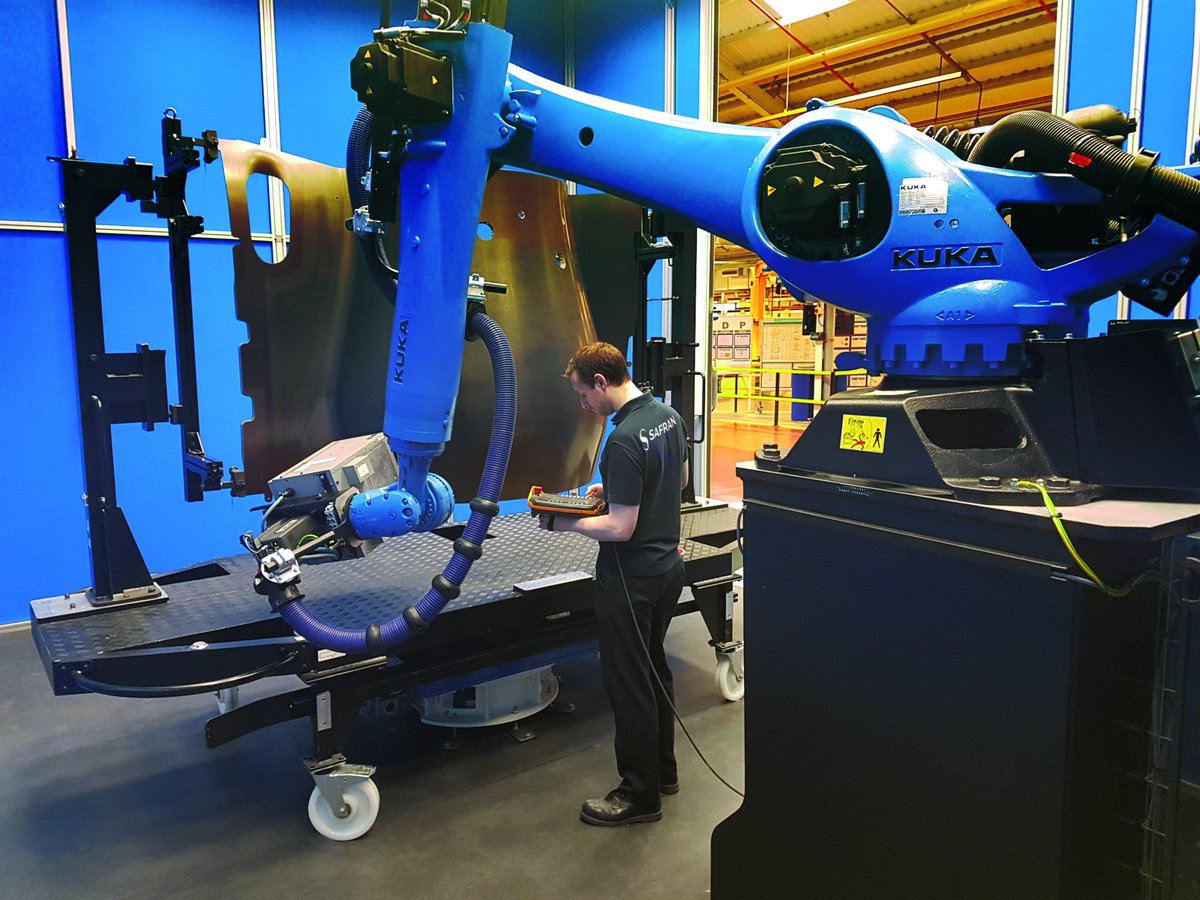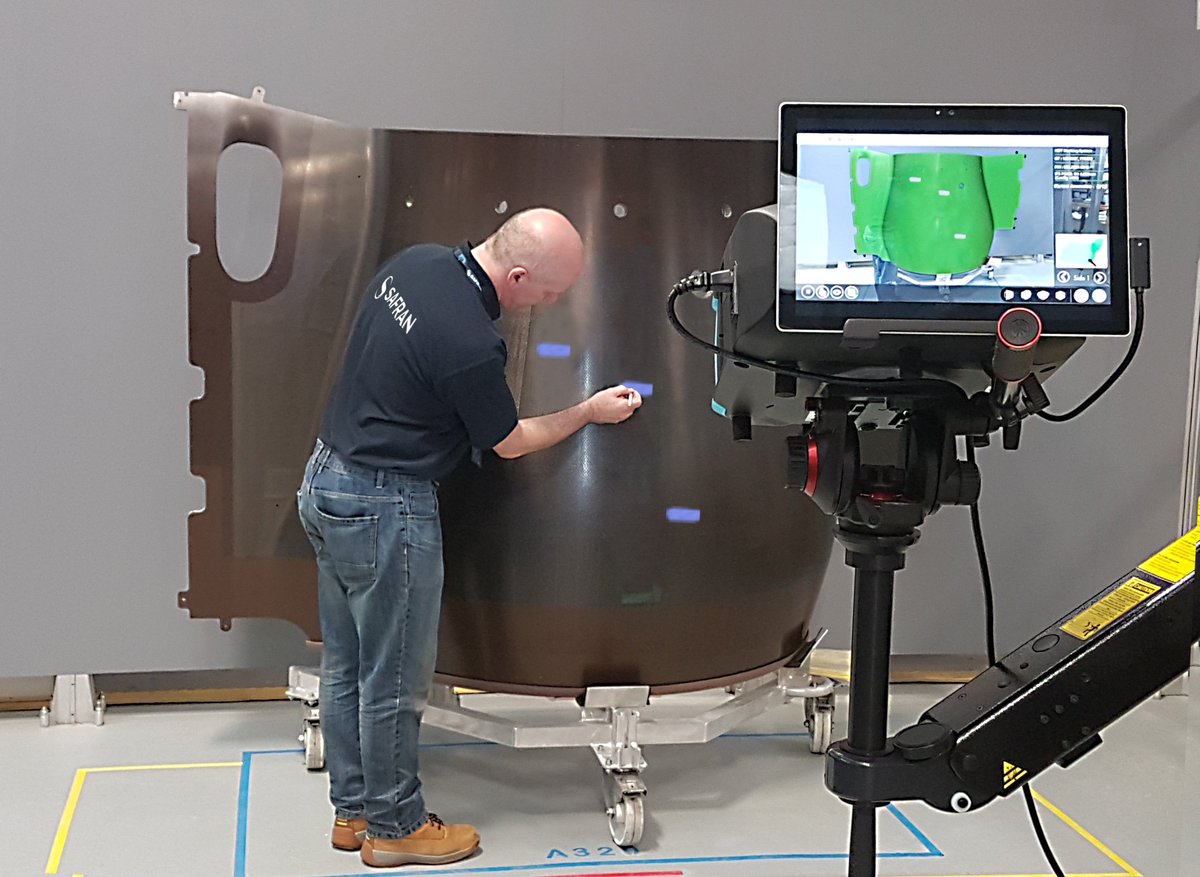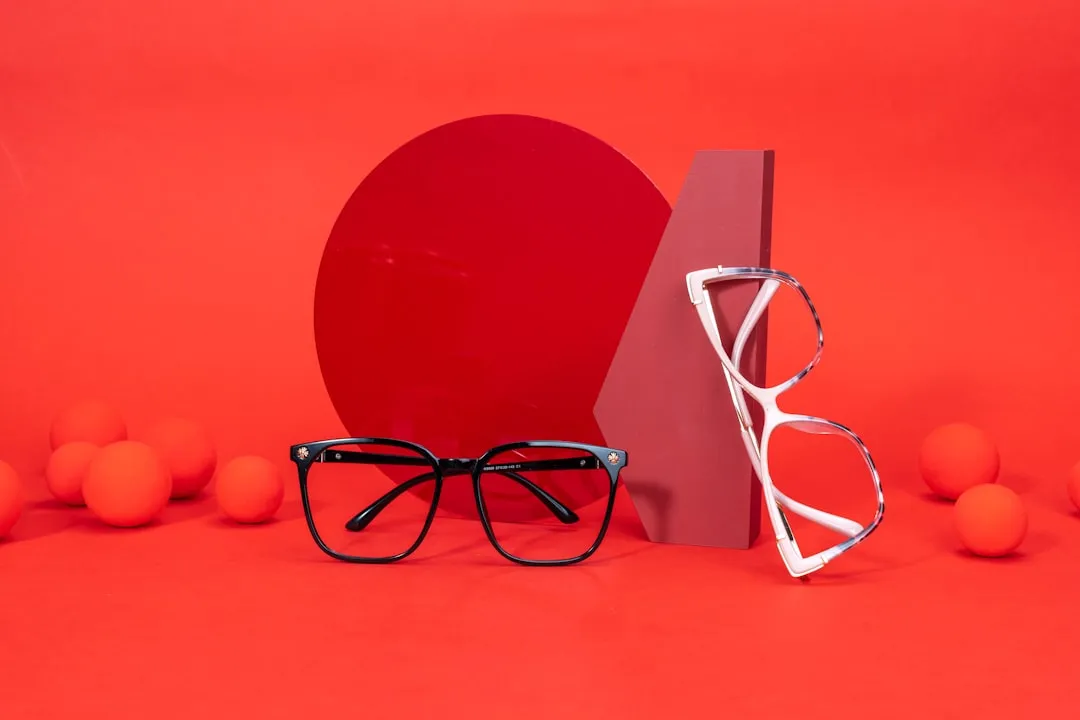It seems nowadays there's no limit to what type of companies are looking to invest in augmented reality. Given both the positive outlook on the future of AR, and its reported benefits for efficiency in employees, this makes sense. Safran, an international corporation with three main sectors—aerospace, defense, and security—is one such company taking the plunge into incorporating AR in their business.
On April 4, Safran Senior Executive VP R&T Stéphane Cueille announced in a press release a "new non-destructive testing process (NDT) for composite panels of aircraft nacelles" that uses infrared technology and AR projection to improve the nacelle-building process.
Nacelles are part of the main body of the aircraft where the engine and fuel systems are located. During flight, these experience massive thermal and aerodynamic stress, so they must be tested to ensured they can handle such a strain. Previously, this usually involved an expensive and slow process called a "test to destruct," which usually ended with the destruction of the part being tested.
Now, with AR, nacelles can be tested without taking them to their breaking point, in a faster and more cost-effective process.
Safran Nacelles, who runs the A320neo LEAP-1A and A330neo Trent 7000 nacelle programs, have put to used a robot named IRIS (because of its use of an InfraRed Inspection System). IRIS uses thermography to scan the different piece of the nacelles and organize data to be analyzed by inspectors. Then, using AR, this analyzed data can be projected onto the corresponding component of the nacelle.
Victoria Foy, Managing Director of Safran Nacelles in Burnley, has expressed her excitement about the "digital factory" this creates for Safran, stating in the press release:
This is more than a new industrial method - it is an innovative process. The teams were mobilised in record time to find solutions for providing support to our customers. They put the Group's highest expertise to use, as well as existing technological and digital tools, such as automation and augmented reality.
With the results so far being 50% less inspection cycle time, this is just another example of how AR could be used to help different market sectors in future years.
- Follow NextReality on Facebook, Twitter, and YouTube
- Follow WonderHowTo on Facebook, Twitter, Pinterest, and Google+
Cover image via Safran Nacelles



























Comments
Be the first, drop a comment!